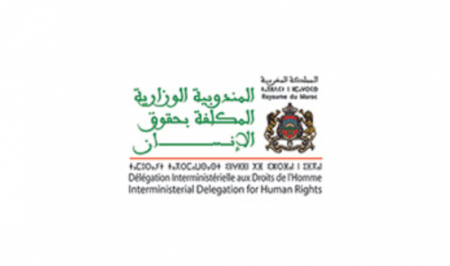DIDH Surprised by Amnesty International’s Attitude to Influence Course of Case Submitted to Competent Jurisdiction
The Inter-Ministerial Delegation for Human Rights (DIDH) said Monday it was surprised by the attitude of Amnesty International (AI) to influence the course of a case submitted to the competent jurisdiction, concerning the death of a person in police custody in Benguerir. “The DIDH can only express its astonishment at this attitude of influencing the course of a case submitted to the competent jurisdiction, which is the only one entitled to judge the relevance of the measures and procedures related to the guarantees of a fair trial,” the DIDH indicated in a clarification sent to MAP, expressing its surprise at ”the attitude of the said organization to persist in its accusations in the absence of an on-site follow-up of this trial.” “How can this organization make assessments on a case that has not yet been judged,” asks the DIDH, before qualifying as ”blatant interference in a case that is still before the courts” the publication on April 6 by Amnesty International of a communiqué on the conditions of death of a person on October 6 last year during his detention ordered by the competent authority of the Benguerir Court of First Instance. In accordance with the law allowing it access to information provided within the framework of institutional coordination, the DIDH notes that this organization “persists in circumventing the working rules followed by international organizations active in the field of human rights, as well as the duty of reserve required in cases awaiting trial, in order not to influence justice and to respect its independence, while ensuring a fair trial for all parties”. The same source adds that “Amnesty International persists in its allegations of questioning the transparency of the investigation and investigation carried out in the framework of a judicial proceeding, despite the fact that it has no capacity attributed to the parties to the trial, having only the right to follow the course of the trial in accordance with agreed human rights practices and also to comment according to agreed standards. But here is the question. The fact is that the judicial police, under the supervision of the prosecutor’s office, have scrupulously ensured that thorough, independent and exhaustive investigations were carried out and it now remains for the competent court to decide on the form and substance of the case.” In this regard, the DIDH notes that “it is agreed that the conduct of interviews or the obtaining of documents as part of the objective investigation on the ground does not represent a decisive argument for making observations”, before questioning the merits of the allegations made by Amensty International. In its clarification, the Interministerial Delegation for Human Rights points out that ”the measures taken by the competent authorities, contrary to the assertions contained in the communiqué of the said organization, show a clear respect for the law through the hearing of all the parties concerned, the exploitation of scientific and technical evidence, the realization of the necessary expertise, including forensic examination, in addition to the conduct of all investigations and inquiries necessary to establish the truth and define responsibilities, and the necessary measures taken against the accused, in particular the bringing to court of four law enforcement officers suspected of having committed reprehensible acts”. He also again questioned the merits of Amnesty International’s allegations. “Amnesty International’s allegations of alleged torture resulting in death are therefore cause for surprise, especially since it has taken the place of the judiciary, ignoring the intricacies of an ongoing case before the judiciary, which has the exclusive role of adapting the law to this case,” the same source laments. The same source continues that he is once again astonished by “the hasty interpretations of Amnesty International’s communiqué, while the competent authorities have not ceased to provide clarifications to public opinion on this case, which has been followed by the general public, through official communiqués on the data concerning the cause of death according to the formal conclusions of the forensic examination, the opening of an investigation under the supervision of the competent prosecutor’s office and the announcement of the prosecution of the accused.”

